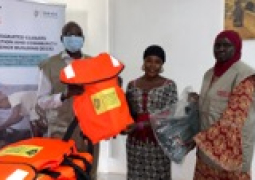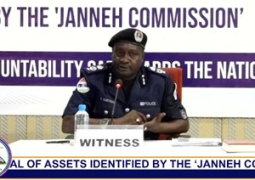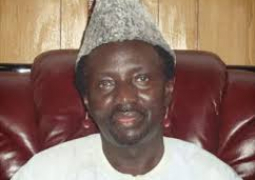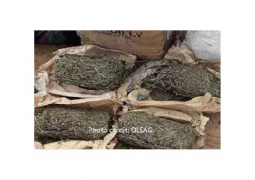
The WB funded project aims to opportune beneficiaries uninterrupted water supply that they can use to curb the COVID-19 pandemic. Tabokoto women often wakeup late night when everyone is in bed except criminals just to beg water from neighbors for domestic usage. They also buy drinkable from neighbors.
Women say they fear for their lives having to wake up and fetch water at that time of the night but have to sacrifice because if they do not, their families would not drink clean water.
Fatou Bah, a native of Tabokoto said, “Even though I am sick, I have to wake up in the middle of the night every day to fetch clean drinking water from my neighbours because at our area, taps only open late hours of the night.”
She added that since the water response tank that was stationed at their area was taken away, they have been struggling with water supply.
She therefore appealed to authorities to find means to address their situation, saying sometimes they would want to cook and do other domestic works but could not due to lack of water.
Abisatou Conteh, also a native of Tabokoto, said the water response tank made life easy for them but since it was taken away they have been suffering with water shortage.
“The entire area used to fetch water from the tank. The day the water response tank was taken away, most of us cried knowing the hardship we would encounter again,” she said.
Binta Sanneh, also of Tabokoto, appealed to authorities to find means to address their constraints, saying the hardship they are experiencing is beyond imagination. She added that they were not even briefed prior to the water tank being taken away.
Nyima Badjie, also a native of Tabokoto, said they only have few taps within the area and bringing back the water response tank will really make live easy for them.
“No matter what you have in this world without water life is worthless,” she stated while calling for bailout from authorities.
During a recent press conference held at NAWEC, Hawa Jallow, Communications Officer for NAWEC said the Covid-19 water tanks assisted by World Bank were no longer sustainable.
According to her, WB declared that they can no longer continue to fund the project which was implemented by NAWEC.
She added that NAWEC on the other hand does not have the financial muscle to continue with the project and would therefore decommission the tanks by Friday 15 October 2021.
Tamsir Sawaneh, a representative of the Water Business Unit at NAWEC, revealed that a task force dubbed ‘Covid- 19 NAWEC Water Response’ was established on 18 March 2020 on the instruction of then Managing Director to respond to the Covid-19 pandemic in the country.
He added that the objective of the task force was to intervene in areas with the NAWEC network where there was acute water supply.
According to him, most of the areas that NAWEC installed the tanks were areas that did not have sufficient water supply.
“We are aware that people have problems to access water but we would like to inform the public that the end of this project is beyond us as a company because the World Bank can no longer fund the project,” he explained.
“We would never shy away from saying that we failed the customers because we cannot give them water as much as they want but we are working tirelessly to positively improve the situation and investigations are going on to make sure the water problem is solved,” he continued.
In urban areas of The Gambia, about 69 percent of the population has access to safe drinking water.
Further, the quality of services is weak due to frequent service outages, with some neighbourhoods not accessing water for days, weeks or even months at a time.
Customers still face erratic supply of water and electricity, which have been exacerbated by the COVID-19 pandemic.
“This support will build on the ongoing efforts of the government to strengthen the electricity and water sectors, and further boost the national response to the COVID-19 pandemic through communications and targeted investments including hand washing facilities in the Greater Banjul Area,” said Elene Imnadze, World Bank Resident Representative at the time.
Twenty thousand water meters were installed or replaced; and three water storage tanks repaired.
This story was produced with support from Journalists for Human Rights (JHR), through its Mobilising Media in the Fight Against COVID-19 in partnership with Mai-Media and The Point.





